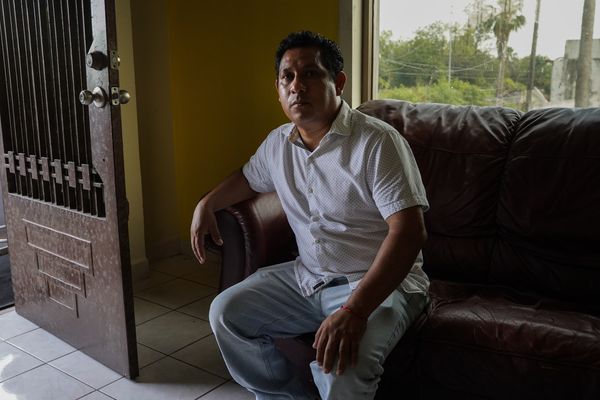Idaho’s near-total ban on abortion — the subject of a case pending before the Supreme Court — has become part of a complicated debate on what constitutes a medical emergency urgent enough to necessitate an abortion in the aftermath of Roe v. Wade being overturned.
In arguments before the high court Wednesday, the federal government argued that Idaho’s abortion law is preempted by the federal Emergency Medical Treatment and Labor Act, or EMTALA, a 1986 law that requires physicians to provide stabilizing care. But the state of Idaho argues that the federal law does not mention abortion in any capacity. They say the Idaho law also creates exceptions for the life of the pregnant person.
That murkiness — between providing stabilizing care for and saving the life of the pregnant person — has had an impact.
Since the law took effect, at least six women experiencing pregnancy complications in Idaho had to be airlifted to neighboring states for care, U.S. Solicitor General Elizabeth Prelogar told the justices Wednesday. The year prior, when the law was not in effect, only one woman experiencing pregnancy complications had to be airlifted to a neighboring state.
On Wednesday, the justices grappled with that issue, with Justice Sonia Sotomayor noting that Idaho law creates a difference between stabilizing a person with a serious medical condition and a person with a condition which is a “great risk of death to the pregnant person.”
She asked if there will be some women who require abortions but would not be treated with abortions.
“If that hypothetical exists…yes, Idaho law does say in that case that abortions aren’t allowed,” Joshua Turner, a lawyer for Idaho said, adding, “what I dispute is that there’s a national uniform standard of care that requires a top-down approach.
“Idaho has set its own standard of care,” he added.
Justice Amy Coney Barrett accused the Idaho lawyer of “hedging” and said she was “surprised” that Turner wasn’t 100 percent sure that a doctor could provide lifesaving care to a woman experiencing pregnancy complications, if the treatment required abortion.
She said that she was under the impression that physicians could act as needed.
“That is the nature of prosecutorial discretion,” Turner told her.
Mental health exception
When discussing what constitutes an emergency abortion, Turner repeatedly brought up the example of abortion care for a patient experiencing a mental health crisis, arguing that federal law would allow a physician to provide that care.
He said there should be other standards of care for someone experiencing a mental health crisis other than abortion and argued that using abortion to treat a mental health emergency would allow for unnecessary abortions in Idaho.
Prelogar, representing the Biden administration, said EMTALA could never require an abortion as stabilizing care for a mental health emergency, because it does not treat the underlying condition.
“That is not the accepted standard of health to treat any pregnancy emergency,” Prelogar told the court.
Access to care
The Supreme Court’s decision in this case could have wide-ranging consequences outside Idaho, said Sabrina Talukder, director of the Center for American Progress’ Women’s Initiative, outside the court.
She argued exceptions to EMTALA could extend to AIDS-related emergencies, gender-affirming care or even some high-cost chronic conditions like diabetes.
“There is no end to what an extremist legislature could do,” Talukder said.
Physicians say the Idaho law is already making it more difficult to administer health care without fear of jail time. Nearly a quarter of Idaho’s practicing obstetricians left the state between August 2022 — the month the abortion law went into effect — and November 2023.
St. Luke’s Health System chief physician executive Jim Souza of Idaho said a common situation when a woman must be airlifted occurs when doctors at his hospital encounter a pregnant woman with a ruptured membrane or whose water broke before 22 weeks gestation; the standard treatment is an abortion.
At this point, the fetus cannot survive for long, but it may still have a heartbeat, and the pregnant person’s health is endangered. Fifty-four such cases of this occurred at the hospital system last year.
“When the guessing game gets too uncomfortable, we transfer the patients out at a very high cost to another state where the doctors are allowed to practice medicine,” Souza said.
Losing physicians
Between 2019 and 2020, before the Dobbs decision overturning Roe, one-eighth of the state’s birthing hospitals closed their doors, according to analysis from March of Dimes.
And nearly 20 percent of women in the rural state do not have a birthing hospital within a 30-minute drive of their home. Two hospital obstetrics programs have closed down since Idaho’s law banning abortion took effect, West Bonner General Health in Sandpoint and Valor Health in Emmett.
The law may also be causing physicians to flee the state.
Nearly a quarter of Idaho’s practicing obstetricians left the state between August 2022 and November 2023, with 58 physicians leaving the state, according to data compiled by the Idaho Physician Well-Being Action Collaborative. Only two obstetricians moved to the state during that same time period.
Idaho has no OBGYN residency programs, so the state must rely on recruitment from out-of-state hospitals to bolster its workforce, and this is becoming increasingly difficult.
“Recruiting has become much more difficult. Positions that we used to fill in weeks stay open for months or don’t get filled at all,” Souza said.
Tejasvi Gowda, an OBGYN medical resident who practices in a state without abortion bans, came to Washington, D.C., to protest outside the court.
In her practice she often sees women who travel from another state to seek care. But physician travel is more nerve-wracking.
“I do really see the value in traveling or providing care in restrictive states because those patients still need care. But personal safety is still definitely something to consider at the same time,” Gowda said.
After arguments concluded, Idaho Attorney General Raúl Labrador, a Republican, told reporters at a press conference outside the court that the Biden administration is misconstruing what’s happening on the ground in Idaho.
He said that it’s not true women are being airlifted outside the state for abortion, and that the American Psychiatric Association said that necessary treatments for some mental health crises is abortion.
“They couldn’t admit that this is what they are trying to do: to have a broad exception to Dobbs,” Labrador said.
The post Case highlights debate over ‘life of the mother’ exception appeared first on Roll Call.






